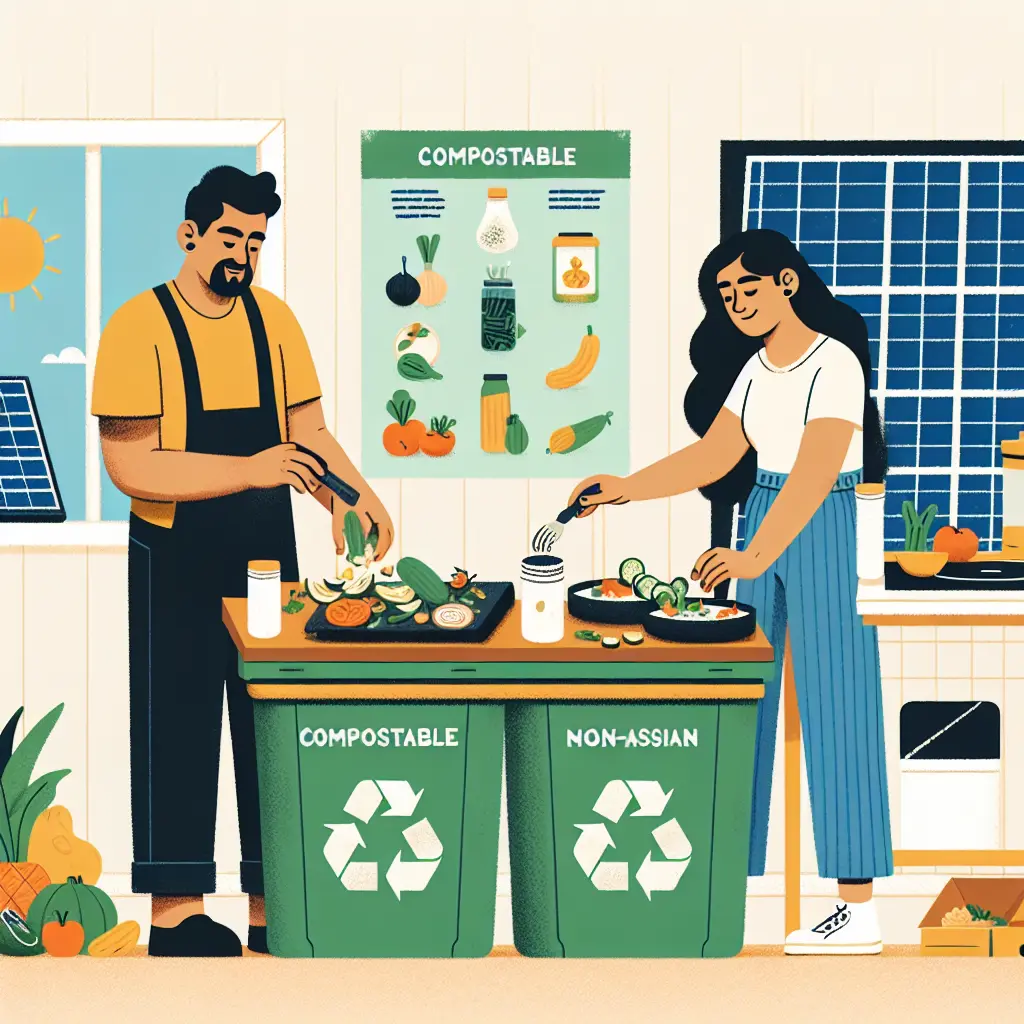
In the era of environmental consciousness, adopting sustainable cooking practices is not just a trend but a necessity. As we strive for a greener planet, reducing food waste through zero waste cooking and eco-friendly cooking methods has become crucial. Today, we'll explore various ways to incorporate waste-free recipes and sustainable kitchen tips into your daily routine, ensuring that you contribute positively to the environment.
Understanding Sustainable Cooking
Sustainable cooking practices encompass everything from sustainable meal planning to composting kitchen waste. These methods not only minimize our ecological footprint but also promote a healthier lifestyle. To start, sustainable grocery shopping is the foundation. By choosing local, organic products and reducing plastic in the kitchen, you can significantly cut down on waste and support farm-to-table practices.
The Role of Seasonal and Organic Cooking Methods
Seasonal cooking is an effective strategy for minimizing food waste. It involves using produce that is in season, thereby ensuring freshness and reducing the environmental impact associated with long-distance transportation (source: Seasonal Food Guide). Similarly, organic cooking methods eliminate the use of chemicals in food production, which is better for the soil and biodiversity.
Innovative Zero Waste Cooking Techniques
Zero waste cooking and low-waste cooking techniques are pivotal in reducing food waste. These include using leftovers creatively and understanding sustainable food storage options. A recent innovation supporting this is the Automatic Garbage Can, which helps keep the cooking area clean and encourages more efficient waste sorting (source: TechCrunch).
Energy-Efficient and Eco-Friendly Cooking
Energy-efficient cooking appliances can significantly reduce your carbon footprint. The Signature Kitchen Suite’s range of products offers versatility and efficiency, catering to the needs of environmentally conscious cooks (source: Signature Kitchen Suite). Moreover, tools like the Meater Plus ensure that you cook your meat perfectly every time, avoiding wastage due to overcooking (source: Meater).
Addressing Common Cooking Myths
A key aspect of eco-friendly cooking is debunking myths that lead to wasteful practices. For instance, it's a common misconception that rinsing chicken before cooking is necessary. Recent studies have shown that this practice can actually spread bacteria around your kitchen (source: CDC). Instead, thorough cooking is sufficient to eliminate any pathogens.
Similarly, when roasting a chicken, consider using methods other than the traditional oven. Techniques like skillet-roasting are not only quicker but also more energy-efficient (source: Cooking Light). This approach aligns with green cooking methods by reducing energy consumption.
The Importance of Composting Kitchen Waste
Composting kitchen waste is another effective strategy for reducing food waste. By turning food scraps into compost, you can enrich the soil for your garden, promoting a more sustainable ecosystem at home (source: EPA).
Sustainable Meal Planning and Food Storage
Sustainable meal planning involves preparing meals in a way that maximizes ingredient usage and minimizes waste. This practice is complemented by sustainable food storage techniques, such as using airtight containers or beeswax wraps to keep food fresh longer without relying on plastic (source: Bees Wrap).
Tech Tools for Sustainable Cooking
Embracing technology can also aid in sustainable cooking. For example, high-quality rice cookers like those from Zojirushi ensure perfectly cooked rice with minimal energy use (source: Zojirushi). Additionally, keeping an eye on indoor air quality while cooking is essential; devices like indoor air quality monitors can help maintain a healthy environment in your kitchen (source: Consumer Reports).
Tips for Reducing Plastic in the Kitchen
Reducing plastic in the kitchen is crucial for eco-friendly cooking. Opt for reusable shopping bags, glass or stainless steel storage containers, and avoid single-use plastics whenever possible. This not only decreases waste but also reduces exposure to potentially harmful chemicals found in plastics.
Conclusion
Adopting sustainable cooking practices such as zero waste cooking, using energy-efficient methods, and engaging in sustainable meal planning are effective ways to contribute to environmental conservation. By integrating these practices into your daily life, you not only reduce food waste but also promote a healthier lifestyle for yourself and the planet.
As we continue our journey towards a more sustainable world, remember that every small change counts. Whether it's choosing seasonal produce, composting kitchen scraps, or creatively using leftovers, each step you take makes a difference. Let's cook our way to a greener future!
Happy Cooking, Derek Hamilton